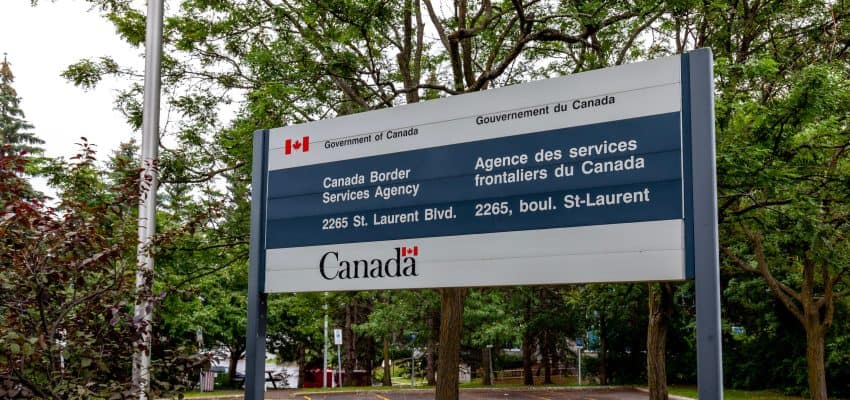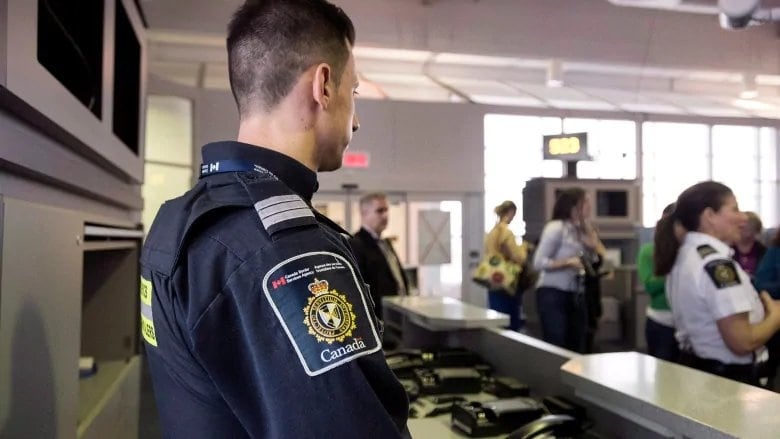Canada's Trudeau Government Imperilling Security
"That's super-concerning. It means that there's a disconnect between the partner agencies engaged in the processing of foreign nationals seeking entry into Canada. It's really alarming.""This is yet another example of why we need to have [a] serious review of how policing, security and intelligence are undertaken in this country and how to coordinate it and make it more efficient and effective.""When it happens 46 per cent of the time, why the hell even bother having CBSA then? Why did you ask them in the first place if you’re basically flipping a coin? This is yet another example of why we need to have serious oversight and constant audit of CBSA and its relationship with other agencies.""That’s not how migration and border security should work.""To me it's unacceptable. As a Canadian I expect more, and I think other Canadians expect that our federal law enforcement, intelligence and border security agencies can work seamlessly, share information seamlessly. And if there are administrative or legal hurdles, then that's something Parliament needs to look at."Kelly Sundberg, criminologist, former border services officer, associate professor, department of economics, justice and policy studies, Mount Royal University, Calgary"[The Canadian Security Intelligence Service (CSIS) goal is to] prevent inadmissible foreign nationals or permanent residents from entering or remaining in Canada.""It should be noted that not all risk is captured through enforcement actions, nor can it be fully monitored through surveillance.""Having these individuals in Canada could have negative consequences for the country’s reputation or result in actions that are more difficult to intercept and act on [e.g. business espionage or threatening Canadian residents], particularly as most of these individuals are short-term visitors.""One individual with an inconclusive screening result was authorized entry to Canada but was later alleged to be a member of a terrorist organization and ended up in the Removal inventory [for deportation]; as such, the risk to public safety of this individual being in Canada was potentially very high."Internal audit of the Immigration National Security Screening Program
 |
According to an internal audit of the Immigration National Security Screening Program, close to half of all foreign nationals who were flagged by Canadian security agencies to the Immigration Department for their ties to serious offences, including war crimes, espionage and terrorism were nonetheless permitted to take up residency in Canada between the years 2014 and 2019, the years the audit covered. Immigration officials, despite warning, ultimately took it upon themselves to approve temporary or permanent residency or refugee applications for a whopping 46 percent of the over 7,000 cases for which the Canadian Border Security Agency recommended against applicants being allowed into the country.
Quietly published earlier this year by the CBSA, the data emerged through a study meant to assess the effectiveness and efficiency of the country's Immigration National Security Screening Program operated by Canada Border Security Agency's national security screening division. A program in tandem collaboration with the Canadian Security Intelligence Service (CSIS) with a goal to "prevent inadmissible foreign nationals or permanent residents from entering or remaining in Canada". They both get a failing grade in spades.
| A young person waits with their families' belongings after getting off a bus and waiting for a taxi to cross into Canada at Roxham Road, an unofficial crossing point from New York State to Quebec, in Plattsburgh, New York, U.S. March 25, 2023. (Carlos Osorio/REUTERS) |
Security screeners are tasked with reviewing temporary or permanent residence applications or refugee claims that Immigration Refugees and Citizenship Canada (IRCC) flags, as posing a potential security risk. Screeners must assess the potential inadmissibility of applicants under sections of the Immigration and Refugee Protection Act, dealing with serious crimes such as espionage, terrorism, crimes against humanity, or organized criminality - and then must submit a recommendation to IRCC officers.
Although the greater majority of applications are positively screened, then allowed into the country, of the 7,141 instances where security screeners forwarded a "non favourable" recommendation to IRCC during the years covered by the audit, 3,314 were permitted into Canada, according to the report. Most of the individuals (numbering 1,887) were allowed into Canada as a result of another government department asserting their applications be approved "in the national interest for high-profile foreign nations who are inadmissible", through a "public-policy exemption", noted the audit.
| Some of the people who got off buses from New York City to Plattsburgh, N.Y. in the hours after the deadline before strict new border rules in Canada decided to try their luck at Roxham Road anyway. (Carlos Osorio/REUTERS) |
IRCC spokesperson Nancy Caron stated that if an officer determines an applicant is inadmissible to Canada on serious grounds such as violating human rights or organized crime, an exemption can be granted if "it is deemed that the entry of this person is in Canada's interest." "Public policy exemptions are issued on a case-b-case and exceptional basis", further remarked IRCC in a statement. 177 such applicants were approved when IRCC disagreed with CBSA's assessment.
The current audit, pointed out Professor Sundbergm, is another in a series of 'wake-up' calls. If CBSA or another security screening agency feels a foreign national should not be granted permission to enter Canada, that then should be the definitive response, he pointed out reasonably. Two major, unexpected influxes of applications during the five years covered by the audit were highlighted; the first, Operation Syrian Refugee when the Trudeau government resettled over 26,000 Syrians within three months to Canada beginning in 2015.
The second represented the sudden influx of 55,000 irregular migrants (illegal entries to Canada) entering at the U.S. border, mostly through the infamous Roxham Road crossing in Quebec between 2017 and 2022 -- and still crossing to the present time, to claim refugee status. In addition, whenever a "inconclusive" finding came back to IRCC from CBSA, the applicant for refugee status was permitted into Canada by IRCC.
Of the more than 420,000 applications receiving favourable recommendation from CBSA between 2014 and 2019, 295 were later investigated and set to be deported. Approximately half of the applicants in that group were found to be members of a terrorist organization. Not mentioned is the very real fact that there are thousands of entrants to Canada deemed to be inadmissible and for whom extradition notices have been sent out, but the individuals involved are nowhere to be found although they're somewhere in Canada...
 |
| The Canada Border Services Agency said its internal review policies and procedures have been 'refined' in light of the granting of permanent residency to a person of 'national security concern.' (CBC) |
Labels: Border Agents, CBSA Audit Revelations, Entrants to Canada, Flaunting Warning, Security, Welcoming Criminals
0 Comments:
Post a Comment
<< Home